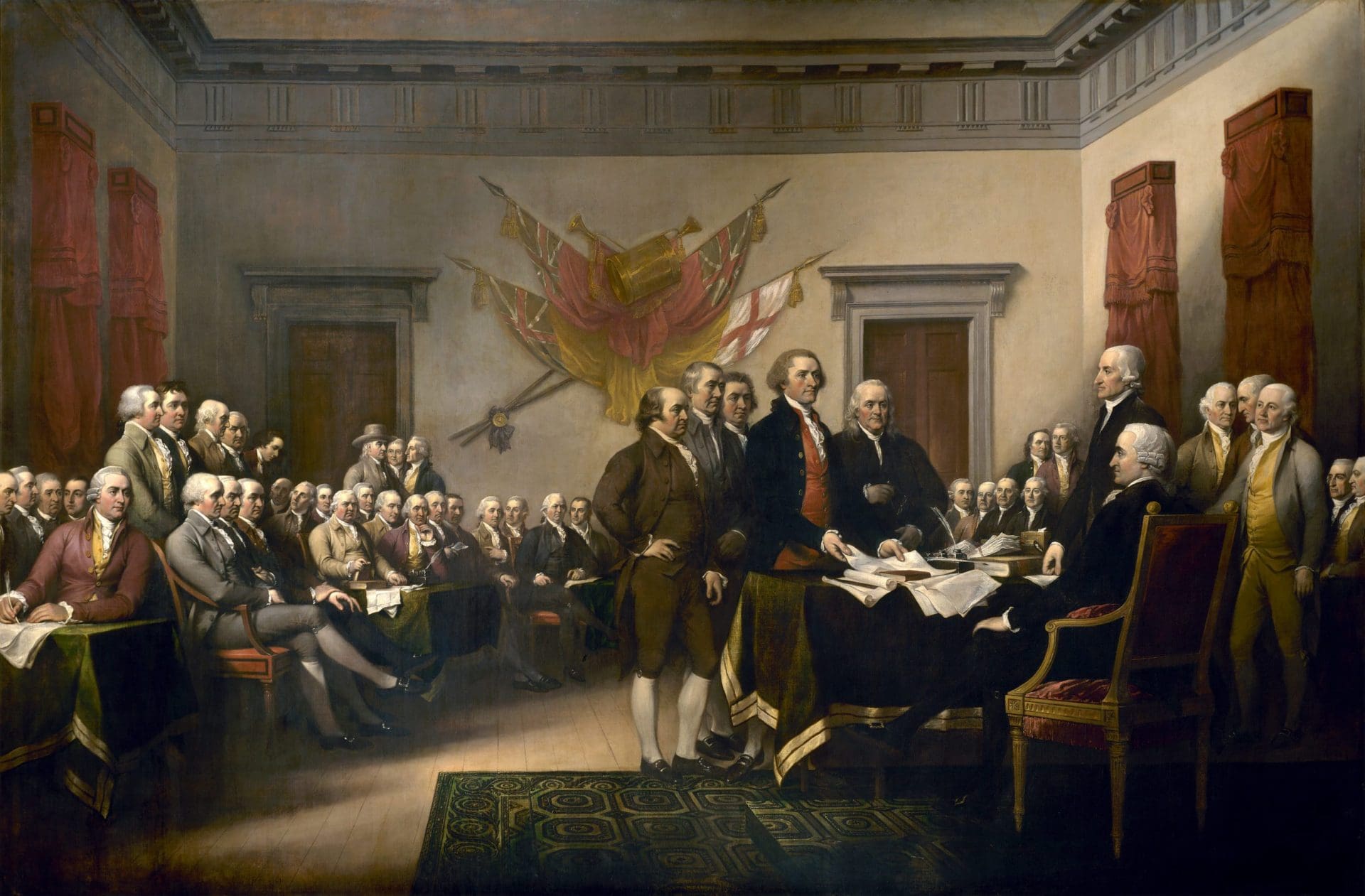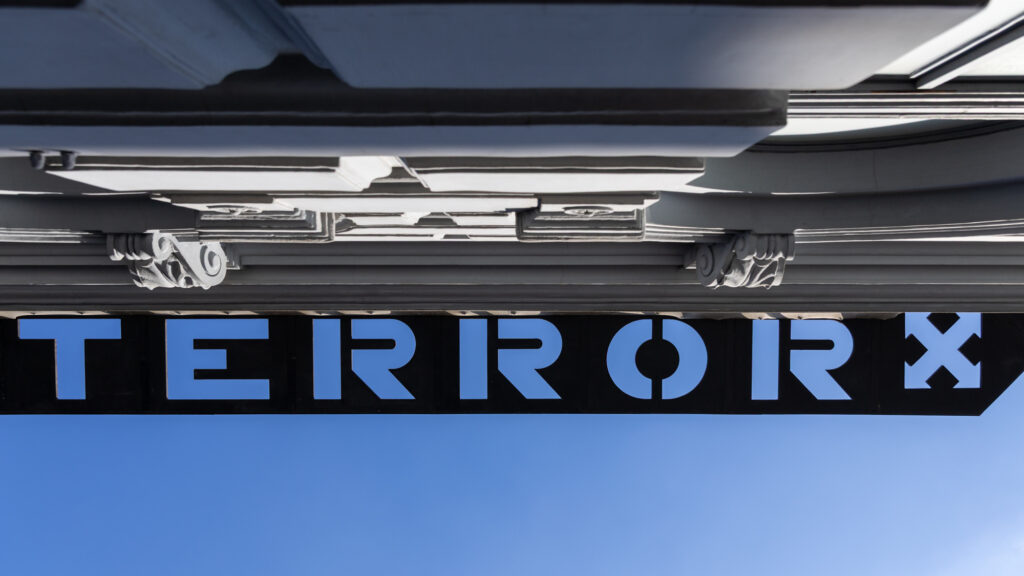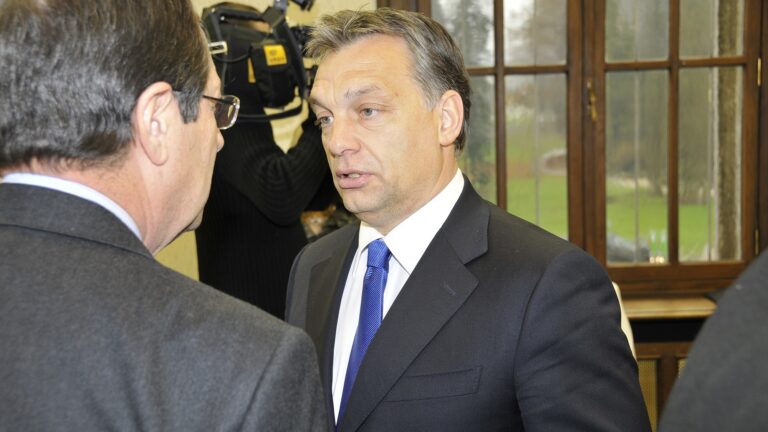Christians’ just rapport with the polis—how the conscience of the faithful should coinhabit a mundane public square—is a puzzle still dogging Christianity. At times it appears to still dog politics itself, no less than two centuries ago.
Something about the Judeo-Christian frame of mind aspires to a higher good, known to lie beyond the reach of politicians to effect, yet sure to court abdication if made impervious to politics. The ability of Christians to extend their notions of the good to others—including the faithful—has been on a non-stop downward course since the Enlightenment, even when said notions strike one as self-evidently superior to their secular competitors. No modern nation has been more profoundly shaped by this tension than the American republic, founded as we are on a thick layer of Christian morality combined with a classical liberalism that conceives of individuals as rights-bearing, able to fashion and pursue their own version of the good life.
Whilst agnostic as to how God’s endowment of rights ramifies in the City of Man, Christianity knows the human bliss that liberalism promises, if at all achievable on earth, to require first and foremost work in the community and with one another, through faith, rather than rationalistic grand-standing. This conflicted spirit of the American system has survived several moral-cultural crises since the 1960s without breaking down; being as reliably liberal as one is faithfully Christian remains to this day, in many ways, a widely sought ideal in our cross-partisan imagination. Even if one decries licentious freedoms in others as injurious to public morality and political health, these liberal excesses remain largely fringe, deemed repulsive even by a locus of American morality no longer monolithically infused by mainstream Protestantism, and even if voicing as much is ever more reputationally perilous in our ‘woke’-dominated culture. This truce between Christianity and the Enlightenment also had America as its laboratory, the Founders’ novus ordo seclorum based in large measure on, yes, freedom from religious persecution, but also on the principle that religion is best left to the private realm—that established religion is corrupt religion. When the same thicket of Christian mores is organically espoused as opposed to coercively enforced, the Founders hoped, it would become the bedrock of our American experiment in republican liberalism.
Much of that tacit compact began to tear at the seams with the sexual revolution of the 1960s and the attendant rise of the Christian right, which went from conservative underdog in the immediate post-Second World War period to the social-reactionary geist of the post-Goldwater GOP—and it has not recovered since. The latest book by free speech attorney and National Review veteran David French, Divided We Fall (St. Martin’s Press, 2020), is styled as a feel-good broadside for civic healing, but its resonance in conservative circles is best understood in light of its failure to take account of this undeniable fact of modern America. French—whose sustained critique of Trumpian populism since joining Steve Hayes’s The Dispatch and writing a weekly Time column has exiled him from the realigned, Hawley-esque right—was dragged through the mud in May 2019 by conservative rising star and New York Post editor Sohrab Ahmari in an essay that pitched the two as intellectual archenemies, and has since supplied an amount of right-tabloid fodder perhaps not seen since the days of Firing Line. Their intellectual face-off is a reflection of an old fissure within Christian thought, but most importantly for French’s readers in the country at large, it is also a watershed marking the post-Trump right’s fractiousness and an omen of what its emerging battle lines are shaping up to be.
Ahmari had typecast ‘David French-ism’ as a ‘program for negotiating Christian retreat into the private role sought for it by today’s overweening liberalism’
Ahmari had typecast ‘David French-ism’ as a ‘program for negotiating Christian retreat into the private role sought for it by today’s overweening liberalism’. French’s subsequent interactions with the conservative intelligentsia have been largely an outraged self-defence against those accusations, and at a debate at Catholic University’s Institute of Humane Ecology a few months later, moderated by Ross Douthat, he claimed that using the levers of classical liberalism to advance Christian moral ideals had been his entire post-military life’s work. There is factual truth to that, and much to admire in French’s career at large, but as Ahmari himself points out, the kind of work that French has done in service of conservatism since his Iraq tours and graduating cum laude from Harvard Law explains his wishful assessment that liberalism and Christianity can still coexist harmoniously, when the social conservatism he claims to represent has for years operated on a pile of evidence to the contrary. French is a pur produit of the religious right’s judicialization, that leg of the conservative legal space concerned not with antitrust, administrative law, and the common-carrier solution to online censorship but with religious liberty and interpreting the First Amendment in a way that protects it. His litigation has involved defending public school Christian clubs through the years from accusations of violating the Establishment Clause for using college facilities. His understanding of the interplay between Christian morality and liberalism as constitutionally interpreted is necessarily optimistic, his own jurisprudence having palpably helped real-life Christians hold the line in the public square. But this experience, rather narrow in the political sense, has blinded French to Christians’ retreating place in our culture even as he remains notionally committed to reversing that trend. Ahmari, who is also a JD (doctor of law) argued at the Institution of Higher Education event that the right’s skittishness when it comes to fighting culture wars is partly due to ‘too much firepower invested in legal activists and judges’.
Knowing French would resent a vendetta on its pages, Ahmari took to the ecumenical First Things magazine, where he is a regular, upon coming across a Facebook ad for a so-called ‘Drag Queen Story Hour’ (DQSH). Pitched as a didactic occasion to make readers of children, the form of multi-generational and even family entertainment that DQSHs amounts to is a re-enactment of queer nightlife, with transgender individuals often teaching kids the arts of twerking to the sound of lascivious lyrics in public libraries rented for that purpose, all to ‘instil gender fluidity in children and give them unabashedly queer role models’, in the words of one of its boosters. What triggered Ahmari is actually a microcosm of two opposing outlooks that will define the right’s future. For him, the very occurrence of DQSHs is so injurious to public morality—to say nothing of the children, whose frightened expression in some tapes is more akin to a victim’s than a spectator’s—that no constitutional piety about free assembly or the right of localities to rent out libraries should get in the way of banning them. If the right shows skittishness about using state power to forbid such forms of evil, Ahmari fears, it will betray its morals and make itself irrelevant in our culturally bellicose politics. French finds the spectacle equally abhorrent but as a free speech absolutist with a disposition more inclined to preserve America over righting its course, no amount of moral damage can compensate for what he argues is a slippery-slope violation of the First Amendment and the federalism that allows progressive urban enclaves to cater to the queer crowd.
This is where French’s accommodating pitch to the right becomes a transferable template for all persuasions, whose increasingly all-or-nothing totalism, he argues in Divided We Fall, puts America at risk by shunning the procedural glue of classical liberalism. It is never redundant to be reminded that our republic assumes substantive disagreements between us over the good, but hinges on the respect of procedural guarantees. However, the difficulty in reviewing a book of this scope and ambition is how the seemingly unarguable claims it foregrounds often mask far more tendentious ones. Starting with the good—yes, only a sustained micro-level effort within churches and communities to humanize the other can begin to invert our vicious loop of hyper-partisanship and negative polarization, though institutional reforms may help too. For French to agree to a broadcast debate with someone who turned his name into something of a populist bogeyman is a commendable exemplar of not letting politics consume our lives, one that sits awkwardly with reciprocally typecasting Ahmari’s common-good conservatism as a form of theocratic zealotry. Following with the less good—yes, America suffers from a crisis of narrative and imagination, and reinfusing our withered common purpose will take a rediscovery of civic patriotism based on the eternal truths of the founding, the only bedrock able to sustain American nationhood. The puzzle for conservatives is to what extent that task is offensive as opposed to defensive, and French’s pitch to rediscover civics often overlooks the civic duty to not let the left’s totalitarian ‘wokeism’ make a mockery of procedural liberalism. He also sounds less prescient, if not outright far-fetched, when floating the menace of secession as a narrative buttress for his case that only enhanced federalism can keep America, irretrievably hyper-fragmented and sorted along lifestyle and partisan lines, from breaking into two or three. If California, Oregon, and Washington state splinter into the American Pacific Republic, or Texit carves out a gun-toting, right-to-life haven in the Southwest, it is hard to see why that would have come about for lack of federalism. Misreading Madison to see in federalism the magical cure to deep-seated civic ills is perhaps another wrinkle of French’s all-too-judicial mind.
Our social fabric suffers from a lack of the associational richness envisioned by the Founders and borne witness to by Tocqueville, with severe consequences in the political and moral realms
And finally, the ugly. At the heart of the Ahmari–French debate lies the same old contention between two higher goods that the American experiment is equally ordained towards sustaining, and to some extent, also predicated upon. Granted, the pluralism that Madison foresaw as the antidote to the viral ‘power of faction’ holds some lessons for the present. Our social fabric suffers from a lack of the associational richness envisioned by the Founders and borne witness to by Tocqueville, with severe consequences in the political and moral realms. But the Republic was also predicated on a certain thicket of Judeo-Christian morality—‘wholly inadequate’ to a people lacking it, per John Quincy—which French too narrowly interprets as merely synonymous with pluralism, to the detriment of substantive morality. And although he never explicitly presupposes an irreconcilable conflict between Christian mores and the Constitution in the context of the hyper-secular, hyper-liberal straining of our national fabric, Divided We Fall will be largely read on the right as a statement of just that trade-off, where French sides with the Constitution at the risk of turning it into an empty shell.
The pity for French’s otherwise commendable book is how the movement that groomed him has already turned the page on his arguments, with conservatives unequivocally choosing morality. His coterie, who, in the words of Jonah Goldberg, style themselves as remnants not just of elite politesse but also of the worn-out 1980s neoliberal consensus, are becoming irrelevant to the broader right. They have lost the partisan anchoring from which to effect the civic healing that French advocates in his book.








